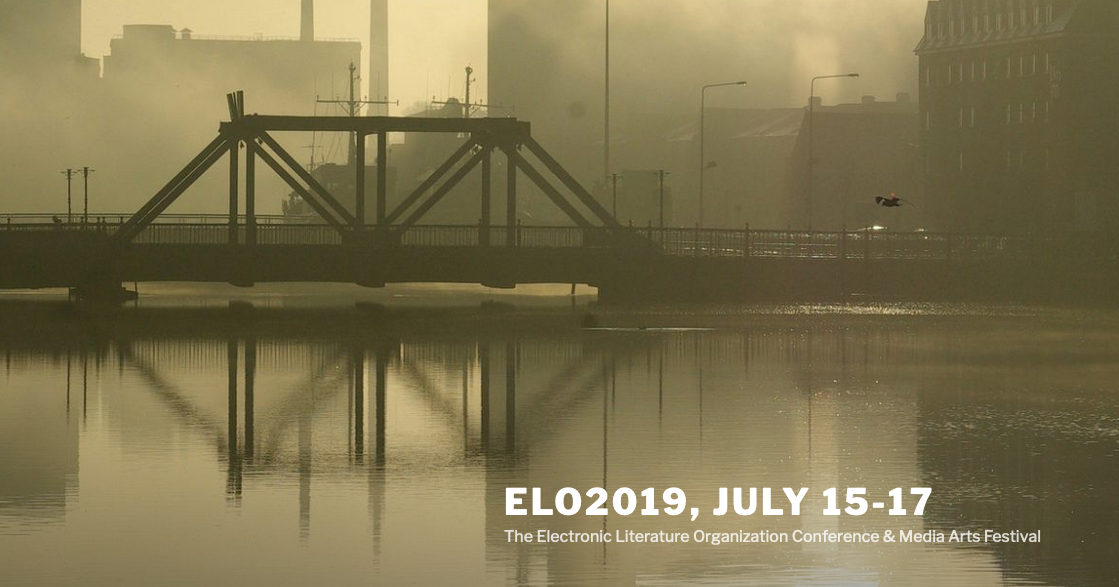Your cart is currently empty!
2019
-
Announcing the ELC4 Editorial Collective
The ELO is pleased to announce the editorial collective of the fourth volume of the Electronic Literature Collection (ELC4). Board member Rui Torres will be joined by Kathi Inman Berens, Mia Zamora,… Read more.
·
-
Announcing the 2019 ELO Prizes
At the annual conference of the Electronic Literature Organization (ELO), held this year in Cork, Ireland, outgoing President Dene Grigar announced the 2019 ELO Prize winners, including: The Robert Coover… Read more.
·
-
ELO Conference Survey
The ELO Board of Directors– and our conference organizers– are interested in offering the most rewarding conference experiences to its community. In order to continue improving in this mission, your… Read more.
-
Call for Nominations for ELC 4 Editors
ELO has put out the call for self-nominations for editors for the fourth Electronic Literature Collection. See the full call below and consider answering it, so you can help shape… Read more.
-
ELO Cork begins
The 2019 ELO conference has begun! The conference, hosted at University College Cork, runs July 15-17. This is the first international conference of digital literature held in Ireland and marks… Read more.
·
-
Call for ELO Research Fellows (April 1)
The ELO is currently expanding its scholarly activity and curatorial operations with the appointment of five graduate and early career Research Fellows, each of whom will be awarded a $500… Read more.
-
Call for Submissions: ELO Prizes
Call for Submissions: 2019 ELO Prizes To nominate or submit: http://dtc-wsuv.org/elo-prize/ The Electronic Literature Organization is proud to offer the following three prestigious awards, The Robert Coover Award for a Work of… Read more.

